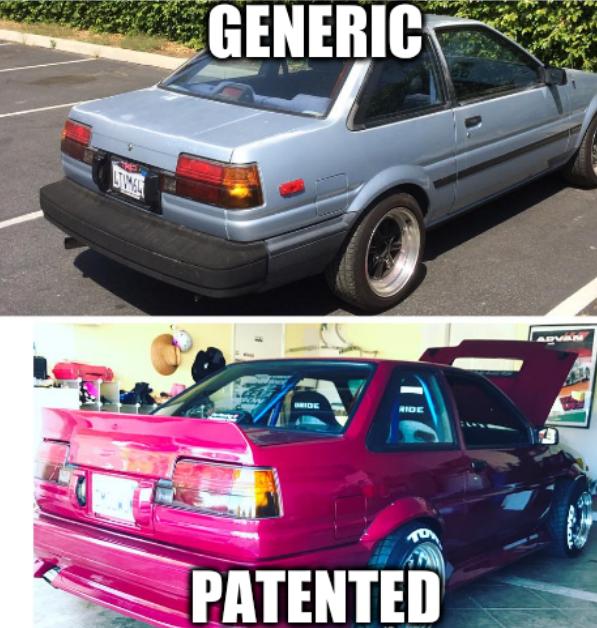

Change it a little, get a patent
THE European Patent Office (EPO) continues granting software patents in Europe in clear and direct defiance of the EPC while JURI -- as we've noted earlier this week -- lends a hand with buzzwords and "technical" nonsense. Even the US is less likely to grant such patents after 2017 of thereabouts (35 U.S.C. ۤ 101/Alice) although that too seems to be changing, owing in part to the loopholes constructed by the EPO across the Atlantic.
"It's not to hard to just grant loads and loads of patents; without quality control it's just anarchic monopolism."Hours ago the EPO tweeted: "Between 2018 and 2019, we recorded a 29% overall increase in European patent applications in #MachineLearning [algorithms] and #PatternRecognition [algorithms] . Read more here: https://bit.ly/DigitalisationIndex …"
They're basically celebrating illegal patents, having bent the law to fake 'production' and harm Europe. And who for? Litigation firms, trolls and monopolists (usually not European at all). It's not to hard to just grant loads and loads of patents; without quality control it's just anarchic monopolism.
Early this morning the EPO revealed a decision regarding patents on life, expressing a sort of regret that it had violated the EPC.
"Enlarged BoA issues opinion on EPO President’s referral on plant and animal patentability exception," the EPO wrote. They don't even state the outcome and the full statement here (warning: epo.org link), with its vague title, says nothing about the outcome.
"EPO probably still gives a greenlight to patenting genetically modified organisms (GMOs)," Henrion opined, quoting. the "EPO technical blackhole: 'technical toppings' such as those describing random mutations, can be used to claim plants and animals as ‘inventions’. Companies can escape the current prohibitions, e.g. European patents on barley and beer, melons or lettuce https://www.no-patents-on-seeds.org/en/node/638 ..."
It's that same old waffle to excuse their illegal patents on algorithms. They give guidance to applicants, urging them to work around the rules, relying on unlawful guidelines for examiners (unhinged and incompatible with the EPC). The EPO's statement goes like this:
Today the Enlarged Board of Appeal, the highest level of judicial authority at the European Patent Office (EPO), issued its opinion G 3/19 on questions related to the patentability of plants and animals.
The opinion, triggered by a referral from the President of the EPO in April 2019, concludes that plants and animals exclusively obtained by means of an essentially biological process are excluded from patentability under the European Patent Convention.
Speaking on the case, António Campinos said, ‘I strongly welcome the opinion of the Enlarged Board of Appeal. It will bring greater legal certainty for patent applicants, and the general public, on what is a sensitive and complex issue that has legal, societal and economic implications.'
The Office will act in accordance with the clarifications provided in the Enlarged Board's opinion and implement them in its examination practice in close consultation with stakeholders. Proceedings in examination and opposition which were stayed while the referral was pending will be gradually resumed.
The Enlarged Board of Appeal (EBA) today issued their opinion in the controversial referral G3/19 (Pepper). The full text of the opinion can be read here. Contrary to what many predicted, the EBA not only found the referral admissible, but also changed their previous interpretation of Article 53(c) EPC to being that plants and animal products produced by essentially biological processes are not patentable.
G3/19 relates to a referral to the EBA by the President following the Board of Appeal decision in T 1063/18 (Pepper). In T 1063/18 (Pepper) the Board of Appeal found that Rule 28(2) EPC (amended by the Administrative Council (AC)) was in conflict with the prior interpretation of Article 53(c) EPC by the EBA in G 2/12 and G 2/13 (Broccoli/Tomato). The Board of Appeal in T 1063/18 (Pepper) thus found that the AC Rule amendment was void. The Board of Appeal also did not feel it necessary to refer the issue to the EBA, reasoning that the EBA had already decided on the question in G 2/12 (Broccoli/Tomato II). The President subsequently referred the question of the patentability of plants produced by essential biological processes to the EBA following a meeting of the AC.